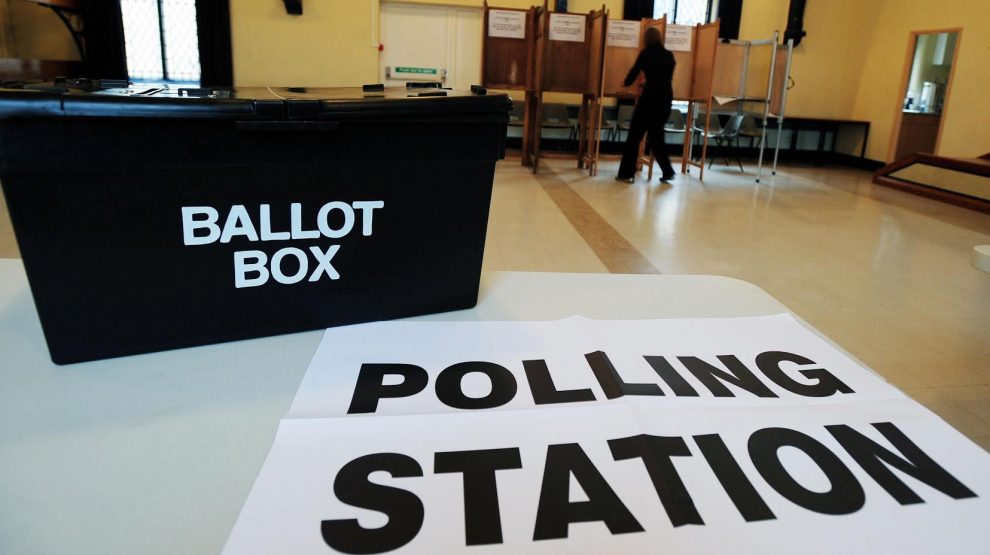A SNAP General Election is unlikely to break the break deadlock, the Electoral Reform Society has warned
The ERS says results are likely to be ‘clear as mud’ when it comes to translating voters’ preferences, with ‘vote-splitting, wasted votes and unfair results on an industrial scale’.
One in four (24%) voters are planning on voting ‘tactically’ – rather than for their first choice – increasing the likelihood of random results under Westminster’s winner-takes-all voting system, according to BMG polling for the Society.
When the same question was asked before the 2017 general election, 20% of people said they’d opt for someone who was not their first choice.
Westminster’s voting system rests on a handful of marginals changing hands: “Eleven seats were won by less than 100 votes in 2017. North East Fife was held by the SNP by just two votes. Such are the vagaries of the system that the Conservatives could have won an absolute majority based on just 533 extra votes in the nine most marginal constituencies.
“A working majority could have been achieved on just 75 additional votes in the right places. Two very different outcomes based on less than 0.0017 per cent of voters choosing differently,” the Society’s 2017 election report noted.
Darren Hughes, Chief Executive of the Electoral Reform Society, said: “Few believe a third General Election in the space of four years will ‘fix’ the current impasse: the only agreement seems to be that there is yet more volatility coming our way, with parties hoping to gain from the chaos.
“It’s amusing to remember that Westminster’s voting system is supposed to deliver ‘strong and stable’ government. It has totally failed to do what it says on the tin, and no wonder – people are rightly shopping around, but this two-party system is totally unable to cope.
“This election is likely to see ‘tactical’ voting on a scale never seen before, alongside widespread ‘vote-splitting’ and candidates getting in on fractions of the vote.
“First Past the Post voting is now an engine of volatility, which could make the current problems even worse. We could see a ‘wrong winner’ election – where the biggest party did not win the most votes – another hung parliament, and wasted votes in the millions. It’s time to join other advanced democracies in backing a fair voting system where seats match votes.
“This must be the last election conducted using Westminster’s scandalously unfair electoral system. It’s time for Westminster catch up with the rest of the world, with proportional representation and an end to the disaster of winner-takes-all voting.
“Whatever the case, this election will be a ‘hold your nose’ ballot, with one in four feeling forced to vote tactically for their second or third choice.
“A snap election guarantees nothing but an unfair lottery for voters. Let’s build a democracy fit for the 21st century, with an electoral system that encourages cooperation, not gridlock.”
ERS analysis of the 2017 election found that millions of people’s votes were thrown on the electoral scrapheap. 68% of votes had no impact on the result – representing 22 million votes going to waste.
Professor Sir John Curtice told LBC today that this election is likely to see a very high number of votes for parties other than the traditional ‘big two’.
In June, he told the ERS: “There is little doubt that Britain’s traditional two-party system is facing its biggest challenge yet in the wake of the Brexit impasse. If that challenge persists it would seem inevitable that there will renewed debate about the merits of the first-past-the-post electoral system.”
The latest YouGov poll puts Labour and the Conservatives on joint support of 59% – far below their 82% reached in 2017.
The ERS is calling for a proportional voting system for Westminster, the Single Transferable Vote system used for Scotland’s local elections and elections in Ireland.
The warped nature of the system is reflected by the fact that in 2017 it took 43,000 votes to elect a Conservative MP, 49,000 for Labour, nearly 200,000 per Lib Dem and over 500,000 votes for the Greens’ single MP. It took just 28,000 votes per SNP MP and 29,000 per DUP MP. The SNP, Greens, Plaid Cymru and Liberal Democrats support PR.
Snap election builds in unfairness















Add Comment